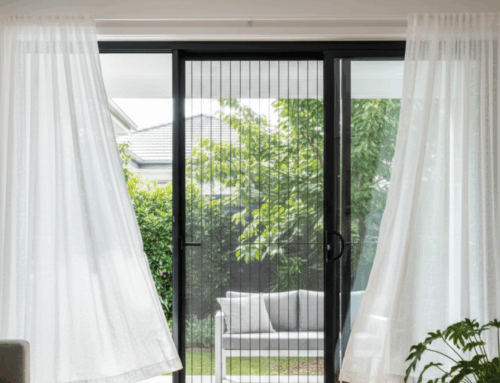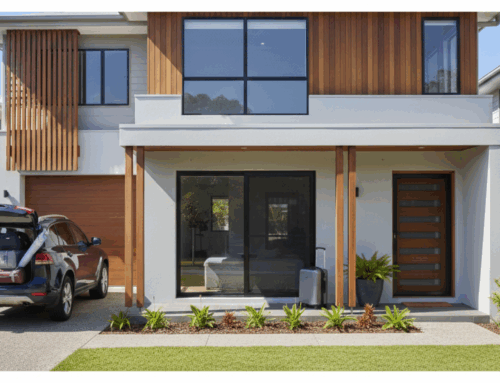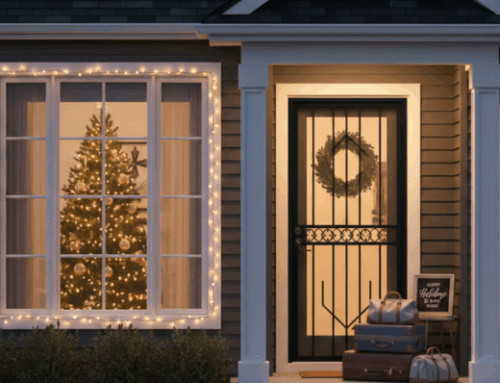When it comes to protecting your home or business, high-quality security screens are a long-term investment. But how long do they really last? If you’re considering upgrading your property with premium security screens, it’s important to understand the durability, maintenance, and factors that affect their longevity. In this guide, we’ll unpack everything you need to know, so you can make an informed and confident decision.
The Truth About Security Screen Lifespan – It’s Longer Than You Think
Many homeowners are surprised to learn that well-made security screens can last anywhere from 10 to 30 years, depending on their material, environment, and maintenance. Unlike standard flyscreens or low-cost imitations, premium security screens are engineered for endurance, often backed by long-term warranties and designed to withstand the toughest conditions.
At Brisbane Security Screens, we specialize in top-tier products that stand the test of time. When installed properly and maintained well, these screens can easily outlive many other parts of your home’s exterior.
Why Cheap Screens Fade Fast (And Premium Ones Don’t)
Low-cost security screens may look similar at first glance, but they often cut corners in terms of material quality and construction. These budget options can begin to degrade within a few short years due to corrosion, UV damage, or mechanical failure. Thin aluminum frames, low-grade mesh, and poor powder-coating can all contribute to a reduced lifespan.
On the other hand, high-quality security screens—like those we offer at Brisbane Security Screens—use marine-grade stainless steel mesh, corrosion-resistant frames, and long-lasting powder coatings. This ensures resistance to rust, fading, and structural wear.
What Really Impacts the Durability of a Security Screen?
Several factors influence how long your security screens will last:
- Material Quality: Stainless steel is the gold standard. Specifically, 316 marine-grade stainless steel mesh provides superior resistance to corrosion compared to lower grades like 304.
- Climate Exposure: Coastal homes are more prone to salt spray, which can accelerate corrosion if the screens aren’t up to the task.
- Installation: Proper installation ensures the screen fits securely, functions correctly, and doesn’t suffer unnecessary wear.
- Maintenance: Regular cleaning and inspections will keep the screen functioning well and looking new.
- Daily Use: High-traffic doors or windows naturally experience more wear and tear.
Understanding these factors can help you prolong the life of your screens and ensure you get the most out of your investment.
5 Hidden Enemies That Wear Out Your Screens Early
Even the best screens can wear prematurely if exposed to certain hidden dangers. Here are some lesser-known culprits:
- Salt Buildup: Especially near coastal areas, salt can accumulate and cause corrosion if not cleaned off regularly.
- Chemical Cleaners: Harsh cleaning products can damage protective coatings or etch the metal.
- Incorrect Installation: Misalignment or loose fitting can cause stress on hinges and fasteners.
- Pests or Pets: Repeated scratching or gnawing can weaken the mesh over time.
- Neglect: Lack of maintenance, including failing to clean or inspect the screens, leads to gradual but preventable damage.
Preventing these issues is key to getting the full lifespan your screens were designed for.
Can a Security Screen Outlive Your Front Door?
In many cases, yes. High-quality security screens are built for endurance and are designed to perform even after years of exposure. Front doors, particularly timber models, may warp, crack, or fade long before a stainless steel security screen shows signs of age. This means you might replace your door before you even think about replacing your screen—especially if you’ve chosen a premium product.
The Surprising Role of Materials in Long-Term Performance
Not all materials are created equal. The type of mesh and frame used in a security screen plays a massive role in how long it will last. Aluminum is lightweight and corrosion-resistant but may dent more easily than stainless steel. On the other hand, stainless steel offers unmatched strength and durability, particularly when powder-coated for UV resistance and corrosion control.
When selecting a screen, always ask about the grade of stainless steel used, the coating process, and the warranty offered. These are strong indicators of the product’s longevity and performance under Australian conditions.
Is Your Screen Still Secure After 10 Years? Here’s How to Tell
Even the best products should be checked periodically. After a decade of use, your screen may still be structurally sound, but a quick inspection can confirm whether it’s still doing its job. Look out for:
- Mesh that’s loose, frayed, or rusting
- Frames that are bent or pulling away
- Hinges and locks that no longer function smoothly
- Surface fading or coating deterioration
If you notice any of these signs, it might be time to repair or upgrade. A reputable provider like Brisbane Security Screens can assess your current setup and offer tailored advice.
Climate, Care & Time: The Durability Trifecta Explained
Where you live, how you maintain your screens, and how long they’ve been installed are the three biggest variables that determine lifespan.
- Climate: Humid and coastal environments are tougher on screens.
- Care: Regular cleaning and inspections protect against premature wear.
- Time: Naturally, age plays a role. But with proper care, premium screens can still perform beautifully 15 or even 20 years down the line.
A monthly wipe-down and annual inspection go a long way in extending your screen’s useful life.
Lifetime Warranty or Marketing Hype? What You Should Know
Some companies advertise “lifetime warranties” that sound great on paper but may come with limitations. Always read the fine print. Is the warranty transferable? Does it cover corrosion, wear and tear, or only structural failure? A trustworthy provider will be transparent about what’s included and offer support should issues arise.
At Brisbane Security Screens, we stand by our products and clearly outline our warranty terms so our clients know exactly what to expect. It’s part of our commitment to quality and customer trust.
Maintenance Myths That Could Shorten Your Screen’s Life
There are a few persistent myths that can do more harm than good when it comes to maintaining your screens:
- “They’re stainless steel, so they don’t need cleaning.” Not true—salt and grime can still cause corrosion over time.
- “Hosing them down is enough.” A gentle wipe with soapy water and a soft cloth is far more effective.
- “If the screen still looks good, there’s nothing to worry about.” Some wear is invisible until it affects performance. Regular checks matter.
Avoid these assumptions and treat your screens as you would any premium home feature.
By understanding what affects the lifespan of a high-quality security screen, you can make smarter purchasing decisions and take better care of your investment. At Brisbane Security Screens, we’re passionate about helping homeowners and businesses find durable, attractive solutions that provide true peace of mind for years to come. Whether you’re in a high-salt coastal area or just looking for better protection, the right screen can last decades—with the right care.





Leave a Reply